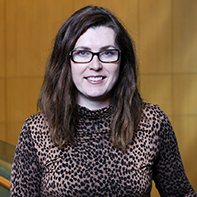Joan Bienvenue, Ph.D.
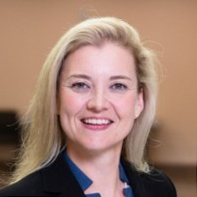
Dr. Bienvenue received a B.S. in Chemistry from Rivier University, an M.S. in Forensic Science at the University of New Haven, a Ph.D. in Chemistry from the University of Virginia, and an M.B.A. from the University of Mary Washington. She was a National Institute of Justice Research Fellow while at UVA, where her work focused on the development of microfluidic systems. This work was summarized in over fifteen peer-reviewed papers and book chapters and presented at many conferences; she is an inventor on five US patents. In addition to this academic work, she was creator and Conference Chair for the annual Commonwealth Conference on National Defense and Intelligence, for seven years, and co-creator and Inaugural Chair of the Gordon Research Conference on Forensic Analysis of Human DNA.
After completion of her graduate studies, Dr. Bienvenue was an ORISE Postdoctoral Research Fellow at the FBI. Following this appointment, she joined the Armed Forces DNA Identification Laboratory (AFDIL), as the Validation and Quality Control Supervisor where she managed a team that provided quality control and oversaw the evaluation, validation, and implementation of new technology for DNA casework analysis in support of remains identification.
She joined Lockheed Martin in 2008 and most recently served as Chief Scientist and Program Manager, in support of the development of rapid microfluidic DNA analysis systems. In June of 2013, she returned to the UVA as Director of the Applied Research Institute (ARI) and was promoted to Senior Executive Director in 2017. As the first full-time leader of ARI, she was responsible for the development, expansion, and evolution of the organization to serve the UVA and national security community.
Following the creation of University of Tennessee – Oak Ridge Innovation Institute, Dr. Bienvenue joined Oak Ridge National Laboratory and became the inaugural Executive Director and Vice Provost of this jointly formed collaboration for research, education, workforce and economic development. Founded in 2020, UT-ORII was established to further align the expertise and infrastructure of ORNL and the University of Tennessee in support of world-leading research and talent development.
In her current role, Dr. Bienvenue serves as an Associate Vice Chancellor for Research for The University of Texas System. In this role, she serves as a strategic partner and resource to enhance, strengthen, and expand the research enterprise within and across The University of Texas System, working in partnership with UT System institutions to facilitate collaboration, guide current programs and collaborations, while identifying and building new opportunities for research engagement, growth, and leadership.
Dr. Bienvenue is a Fellow of the American Academy of Forensic Sciences and was appointed to the National Academies of Science, Engineering, and Medicine, Board on Army Research and Development in 2019, where she has co-chaired several NASEM efforts. She is also a member of the Advisory Boards for the Tickle College of Engineering at the University of Tennessee and the University of Tennessee One Health Initiative, as well as the East Tennessee Economic Council.
Tracey D. Ford, Ed.D.
 Dr. Tracey D. Ford is an Associate Vice Chancellor for Student Affairs in the Office of Academic Affairs at the University of Texas System Office, where she leads initiatives supporting student well-being, enrollment management and policy. As the UT System’s senior student affairs officer, she collaborates with campus-based leaders to assess, develop, and evaluate systemwide programs and policies aimed at enhancing the student experience and student success. With more than two decades of administrative experience, she has held senior roles at institutions such as the University of North Carolina System Office, North Carolina A&T State University, UNC School of the Arts, Tennessee State University and the University of Georgia.
Dr. Tracey D. Ford is an Associate Vice Chancellor for Student Affairs in the Office of Academic Affairs at the University of Texas System Office, where she leads initiatives supporting student well-being, enrollment management and policy. As the UT System’s senior student affairs officer, she collaborates with campus-based leaders to assess, develop, and evaluate systemwide programs and policies aimed at enhancing the student experience and student success. With more than two decades of administrative experience, she has held senior roles at institutions such as the University of North Carolina System Office, North Carolina A&T State University, UNC School of the Arts, Tennessee State University and the University of Georgia.
Prior to joining the UT System, Dr. Ford served as Vice Provost and Dean of Student Affairs at the University of North Carolina School of the Arts. In this role, she provided executive-level leadership and oversight for student services and university policies, served as campus co-lead for the new residence hall capital project, led the student response to COVID-19, and supported student academic, artistic, and professional growth. At UNCSA she served on the enrollment management team, SACSCOC committee, Deans’ Council, Provost leadership team, Chancellor’s Executive Cabinet, and faculty council.
At Tennessee State University, Dr. Ford served as Vice President for Student Affairs, overseeing a comprehensive range of student development and support services, including residence life, health and wellness, student programming, and career services. Her leadership strengthened campus engagement and improved outcomes in student support and retention. While at TSU she transformed Residence Life, created the inaugural Vice President for Health and Wellbeing position, established the Housing Scholarship, developed the Student Affairs graduate assistantship program, served on the SACSCOC QEP team and collaborated with the provost and faculty to improve the academic experiences of students.
Dr. Ford was the Assistant Vice President for Academic and Student Affairs at the University of North Carolina System Office. There, she led systemwide efforts in student success, academic policy, enrollment, transfer and military student initiatives, and career development across 17 institutions. She played a key role in implementing the Board of Governors’ Fostering Undergraduate Student Success (FUSS) policy and co-chaired its Advising Workgroup.
She served as Director of the Center for Academic Excellence at North Carolina A&T State University, where she served as dean for over 1,000 undecided students and chairperson for remedial education (math, English, and reading). She advanced best practices that improved student learning outcomes, reduced remediation, and streamlined paths to major declaration. She improved the Student Athlete Academic Enhancement program by growing the staff from one to five FTE which improved compliance with the NCAA.
Dr. Ford is an award-winning advocate for education, leadership, and youth development. She was a semi-finalist for the First Year Advocate Award, the UGA SOAR Advisor of the Year, and Woman of the Year for the St. Mark AME Church and the Athens Graduate Chapter of Omega Psi Phi Fraternity, Inc. She is a certified Tennessee Supreme Court Rule 31 Mediator, has completed the AASC&U Millennium Leadership Initiative, UNC BRIDGES and is a member of the Alpha Cohort of the Higher Education Leadership Foundation program. She holds a bachelor’s degree in biology from Norfolk State University, a master’s degree in genetics from Howard University, and the doctorate in education from the UGA Louise McBee Institute of Higher Education.
Laura Hartmann
Laura Samala Hartmann serves as Deputy Vice Chancellor for Governmental Relations and Academic Affairs, bringing more than two decades of experience in legislative and academic policy in Texas and Florida. Since joining The University of Texas System in 2004, she has worked closely with the UT System Office of Academic Affairs and the system’s nine academic institutions to advance coordinated legislative engagement with the Texas Legislature and state agencies, drawing on her expertise in legislative process, governance, and parliamentary procedure. Over her tenure, Laura has played a key role in shaping major legislative initiatives affecting higher education in Texas, including Title IX, higher education governance, educator preparation programs, the integration of Stephen F. Austin State University into the UT System and emerging policy areas such as artificial intelligence, which she oversees as chair of the UT System AI Workgroup. Laura is a native Floridian and a graduate of Florida State University’s College of Social Sciences and Public Policy.
Jen Griffis, MSSW
 Dr. Jennifer Griffis is a Program Manager in the Office of Academic Affairs at The University of Texas System, where she leads and supports student success initiatives across the system. Her work focuses on program development, project management, and fostering collaboration across UT institutions. Dr. Griffis facilitates multi-campus communities of practice to leverage shared expertise and resources in service of student success. She also partners with individual institutions to support student-centered curricular redesign efforts. Dr. Griffis manages Finish@UT, the UT System’s inter-institutional course enrollment program, which provides students with access to courses across multiple UT institutions to help them complete their degrees.
Dr. Jennifer Griffis is a Program Manager in the Office of Academic Affairs at The University of Texas System, where she leads and supports student success initiatives across the system. Her work focuses on program development, project management, and fostering collaboration across UT institutions. Dr. Griffis facilitates multi-campus communities of practice to leverage shared expertise and resources in service of student success. She also partners with individual institutions to support student-centered curricular redesign efforts. Dr. Griffis manages Finish@UT, the UT System’s inter-institutional course enrollment program, which provides students with access to courses across multiple UT institutions to help them complete their degrees.
Dr. Griffis’s work is informed by a deep background in both K-12 and higher education student success initiatives, with a focus on supporting students along the PK–workforce continuum. Before joining the UT System in December 2022, Jen served as a Director at the National School Climate Center, where she led inclusive school climate improvement initiatives and directed a multi-year leadership certification program for school district leaders nationwide. She previously spent 14 years at Communities In Schools of Central Texas, holding positions including Chief Program Officer. There, she led strategic initiatives to implement integrated student support models in K-12 schools to promote student success and prepare students for college and career pathways.
Jen earned her Ph.D. in Organizational Development and Leadership from the University of Arizona Global Campus, where her research focused on inter-organizational learning among universities. She holds bachelor’s and master’s degrees from The University of Texas at Austin, where she began her career supporting first-generation college students. She is honored to be back in the UT System working alongside campus and system leaders to remove barriers and empower students to reach their goals.
Kelli Linza, M.S.
Kelli Linza is an experienced collaborator with years of experience in project management and cross department collaboration. Before joining The University of Texas System, Kelli served as Director of Strategic Initiatives for Texas A&M University System Vice Chancellor of Disaster and Emergency Services at the Texas Division of Emergency Management (TDEM). Prior to her current position, Kelli served as Chief of Staff at Texas A&M University and Project Manager at The Texas A&M University System. She holds both her master's and bachelor's in political science from California State University Fullerton and is in the process of obtaining her Ed.D. in Higher Education from Texas A&M University Commerce.
Rebecca Karoff, Ph.D.
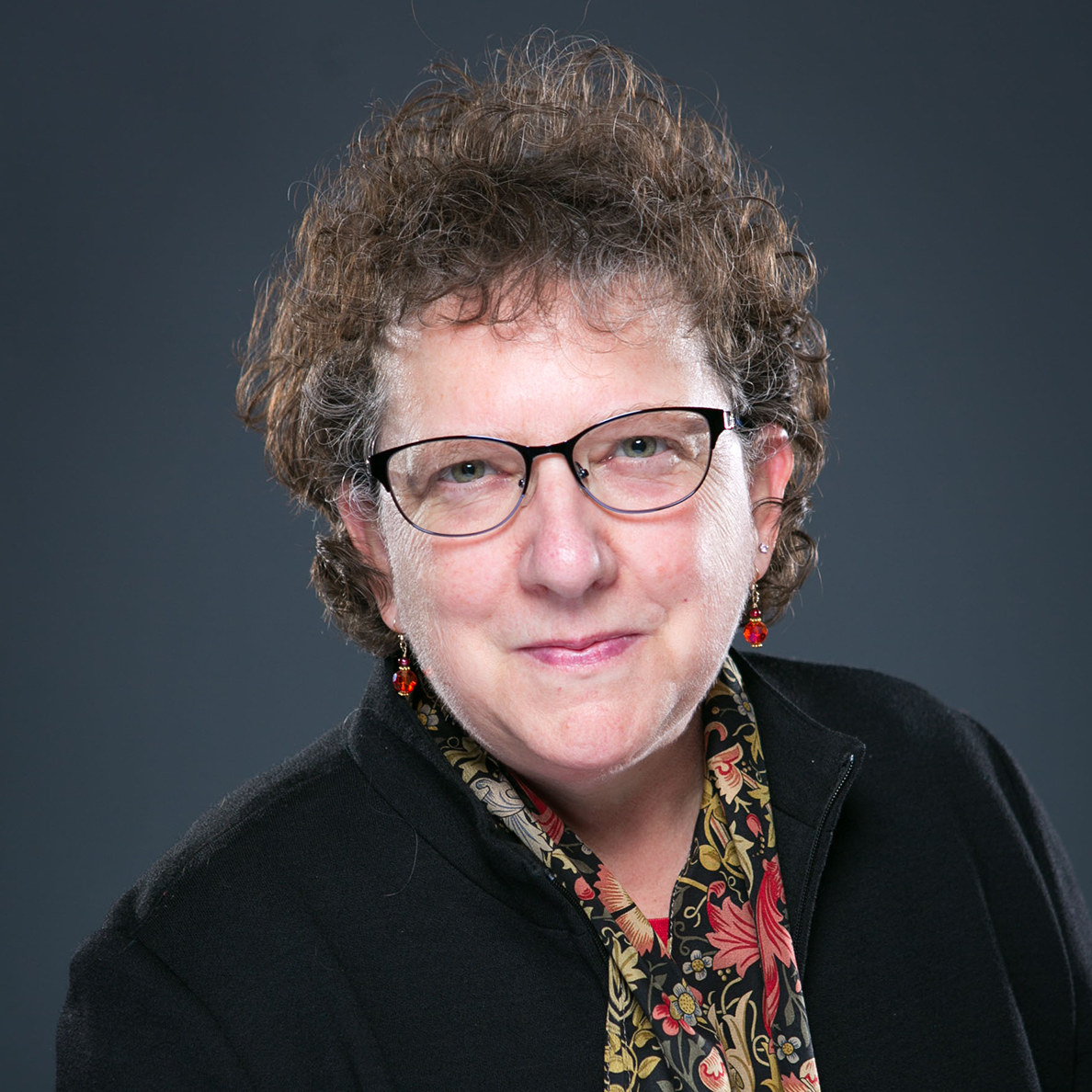
Dr. Rebecca Karoff joined The University of Texas System in February 2016 as an Associate Vice Chancellor for Academic Affairs. With more than 25 years working in public higher education at the system level, first in Wisconsin and now in Texas, she is dedicated to utilizing the power of the system as a catalyst for quality educational attainment, equity, innovation, and transformation in the 21st-century global society.
Dr. Karoff is responsible for leading and supporting student success initiatives systemwide. Her work addresses the student success continuum, PK-20 and into the workforce, and recognizes the remarkable responsibility and opportunity of The University of Texas System to achieve more equitable access and outcomes for the state’s increasingly diverse students. She is the primary architect of the UT System’s student success framework and collaborates with institutional colleagues across the UT System to ensure student financial well-being, effective advising, and students’ sense of academic and social belonging. She is the PI on grants from the Lumina and Trellis Foundations to fund the Exemplary Student Pathways Project, that aims to improve student success at each of the UT System's nine academic institutions, combining the power of data with a proven change model to design new curricular pathways to support more students to enter and complete quality degree programs.
Her work includes leadership of the UT System’s momentum-building strategy on Open Educational Resources (OER), expanding professional development to support advisors and advising excellence, and working with faculty to embrace their roles in student success. All her work is data-informed, student-centered and quality-driven, and she is interested in expanded approaches to measuring student success.
Beyond the UT System, she is a member of the Texas Transfer Alliance, a statewide, cross-sector collaboration hosted by Educate Texas designed to achieve equitable student success through improvements in credit mobility, academic transfer, and credentialing. She is active in NASH, the National Association of Higher Education Systems (NASH), where she has helped lead several national student success initiatives, including the development of the Equity Action Framework, a tool designed for university systems to assess their progress toward, and act on the adoption and integration of essential equity practices through sustained engagement. She has helped lead and participated in several statewide and national initiatives designed to build capacity and engagement with OER, in collaboration with the Texas Higher Education Coordinating Board (THECB) and the national consortium DOERS3, the Driving OER Sustainability for Student Success Collaborative. She serves on the advisory boards for the Association of College and University Educators (ACUE) and the Gates-funded EBTC.
Prior to joining the UT System, Dr. Karoff served as Senior Special Assistant to the Senior Vice President for Academic and Student Affairs at the University of Wisconsin System, where she utilized her extensive policy background to help drive proficiency-based curricular delivery and reform through a number of collaborative systemwide initiatives. She was the founder and director of LEAP Wisconsin, the UW System's partnership with the Association of American Colleges & Universities (AAC&U) on its Liberal Education and America’s Promise or LEAP Campaign. With AAC&U, she led a number of grant-funded LEAP projects in the UW System. Additionally, she played a lead role in the planning and development of The UW Flexible Option, the University of Wisconsin System's online, competency-based educational program.
Dr. Karoff has been successful in identifying internal and external resources to fund institutional and system student success work, including grants from the Lumina, Trellis and Gates Foundations. She has authored published articles, and regularly presents at state and national conferences.
A native of Massachusetts, Dr. Karoff moved to Wisconsin to pursue graduate study in Comparative Literature. Before entering public higher education administration, Dr. Karoff taught Comparative Literature at UW-Madison, from which she received Ph.D. and M.A. degrees. She earned a B.A. with Honors from Brown University.
Serenity Rose King, Ph.D.
Dr. Serenity Rose King serves as an Associate Vice Chancellor for Academic Affairs at UT System, a role she began part-time in January 2025. Through August 2025, Dr. King also served as the Acting Associate Vice President for Institutional Success and Decision Support at UT Dallas, where she worked for 21 years, including 16 in the Provost’s Office as an assistant and associate provost for program and policy coordination. While at UT Dallas, Dr. King identified a gap in intentional training and development for faculty placed in administrative roles. This led her to initially create “optional” onboarding sessions for new deans and associate deans, and those enriching conversations with both new and experienced leaders served as the seeds for research questions which later evolved into a dissertation on succession planning and leadership development in Texas public institutions. She subsequently created Lead UTD, a leadership development and administrative training program at UT Dallas, which she facilitated from 2019 through May 2025. During that time, 100 deans, associate deans, department/program heads, and other academic leaders participated in Lead UTD. She has since given presentations to UTRGV's chairs and UT Austin's Aspiring Leaders Academy. Dr. King is certified in Academic Impressions' Five Paths to Leadership assessment.
At UT System, in addition to reviewing requests for faculty promotion and tenure, new degree programs, and changes to admissions policies, Dr. King serves as the liaison to the Faculty Advisory Council, the Faculty Success Community of Practice, the Accreditation Liaison Community of Practice, and the Professional and Continuing Education Community of Practice. She also collaborates with other Academic Affairs staff on the Transfer Advisory Group and with the Institutional Research Directors. In addition, she works closely with other offices on legislative analysis and policy review, and she supervises the Texas Credentials for the Future initiative. In partnership with campus faculty and academic administration, as well as other colleagues in the Office of Academic Affairs, Dr. King serves as a thought partner in curricular redesign efforts for career-engaged learning.
Dr. King’s career in academia started at Wayland Baptist University and then the Texas Tech Health Science Center-Amarillo Campus before she joined UT Dallas in 2004. While at UT Dallas, Dr. King helped fuel its evolution from a small commuter school to an R1 institution, co-writing degree program proposals for more than 50 new majors over a few years, and more than 70 proposals over her full career there. Dr. King served as the THECB and accreditation liaison, the university-wide policy coordinator, the provost’s office representative on multiple strategic planning and enrollment management committees, and as an executive council member of the new student engagement board. She also helped co-create the International Center and the student success center, and for years she facilitated a university-wide student success advisory group. Dr. King led or served on more than two dozen university governing committees. Her most recent responsibilities included university-wide policy, accreditation, assessment and evaluation—including employee and student climate surveys—data governance, institutional research, institutional data compliance reporting, the data warehouse, a web applications technology team, and the centralized student CRM team.
Dr. King, whose doctorate is in Public Affairs, has a passion for being a public servant in Texas. In addition to her service to her campus, she also served on multiple UT System and statewide groups focused on improving transfer student success, and held leadership roles including treasurer, vice president, president, and past president of the Texas Council of Chief Academic Officers. Dr. King belongs to both the Pi Alpha Alpha and Phi Kappa Phi national honor societies, is a member of the Chickasaw Nation, and is a first-generation professional from the Texas Panhandle.
Kasey Klepfer, MPAff

Kasey Klepfer serves as Senior Research and Policy Analyst at The University of Texas System. In this role, Kasey supports strategic priorities for the Office of Academic Affairs through data analysis, research, policy development, and institutional support. Before joining the Academic Affairs team, Kasey served in the Office of Institutional Research and Analysis at UT System helping to transform traditional institutional research (IR) data into timely and meaningful information. Kasey has more than a decade of experience in higher education, specializing in college readiness, student success, financial aid policy, and student financial wellness (including food and housing insecurity).
In a previous role at Trellis Company—a nonprofit corporation focused on helping people leverage the power of post-secondary education and learning to improve their quality of life and the communities in which they live—Kasey led the design and implementation of the nationwide Student Financial Wellness Survey. On behalf of the Texas Higher Education Coordinating Board, he led an evaluation of a state pilot program that sought to reduce student loan defaults and improve financial literacy among college students in Texas. Kasey currently serves on the Knowledge Development Steering Committee for the Texas Association of Community Colleges where he contributes to a statewide research agenda aimed to improve community college practice and to inform policy benefiting college’s pathways reform strategies.
A native of Austin and the surrounding Hill Country, Kasey earned a B.A. in History and Government from The University of Texas at Austin and a Master of Public Affairs from the LBJ School of Public Affairs. He is dedicated to increasing the educational opportunities and attainment of traditionally underserved populations through data-driven policies.
Jeremy Martin, MPAff
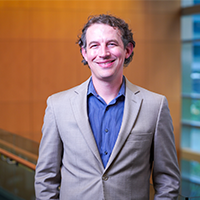 Jeremy Martin joined The University of Texas System in January 2023. As Senior Research and Policy Analyst in the Office of Academic Affairs, Jeremy supports a broad portfolio of initiatives in service of the mission of The University of Texas System and its institutions. He conducts quantitative and qualitative analysis of critical policy issues, collaborates on the administration of System programs and grant-funded projects to advance student success, and researches best practices in the P-16 and higher education sectors to strategically align system-wide initiatives.
Jeremy Martin joined The University of Texas System in January 2023. As Senior Research and Policy Analyst in the Office of Academic Affairs, Jeremy supports a broad portfolio of initiatives in service of the mission of The University of Texas System and its institutions. He conducts quantitative and qualitative analysis of critical policy issues, collaborates on the administration of System programs and grant-funded projects to advance student success, and researches best practices in the P-16 and higher education sectors to strategically align system-wide initiatives.
Before joining the UT System, Jeremy served in a variety of roles at research centers at The University of Texas at Austin. First, as Senior Research and Policy Analyst, Higher Education, at The Charles A. Dana Center, he led large-scale projects to support state higher education agencies and systems of higher education in adopting policies and practices that improve access and success in post-secondary STEM education. Working collaboratively with faculty, staff, and administrative leaders in numerous states across the country, Jeremy helped galvanize the national movement to advance evidence-based reforms including mathematics pathways, corequisite remediation, multiple measures placement, and credit mobility for transfer students.
More recently, he worked as a Senior Program Coordinator at the Center for Health Communication at Moody College of Communication. In this role, Jeremy provided leadership, management, and implementation of state-funded projects related to substance use disorder prevention, opioid overdose prevention, and physician outreach in Texas. In close coordination with a team of designers, writers, and program staff, he developed and evaluated evidence-based public health communication projects to reduce stigma and increase access to treatment services for individuals and communities affected by the opioid crisis.
Jeremy began his career in education as a public high school teacher in the Austin-area. Although he is certified to teach English and communication, he spent the majority of his time in the classroom coaching speech and debate and guiding students in their development of essentials skills including research, rhetoric, critical thinking, and organization. He led large, diverse teams of forensics students to achieve competitive success at state- and national-level tournaments.
Jeremy is a native Texan and has lived in the Austin-area for most of his life. He earned a B.A. in English from Dartmouth College and a Master of Public Affairs from the LBJ School of Public Affairs at The University of Texas at Austin. He is currently pursuing a Ph.D. in Higher Education Leadership and Policy at The University of Texas at Austin.
Nichole Prescott, Ph.D.
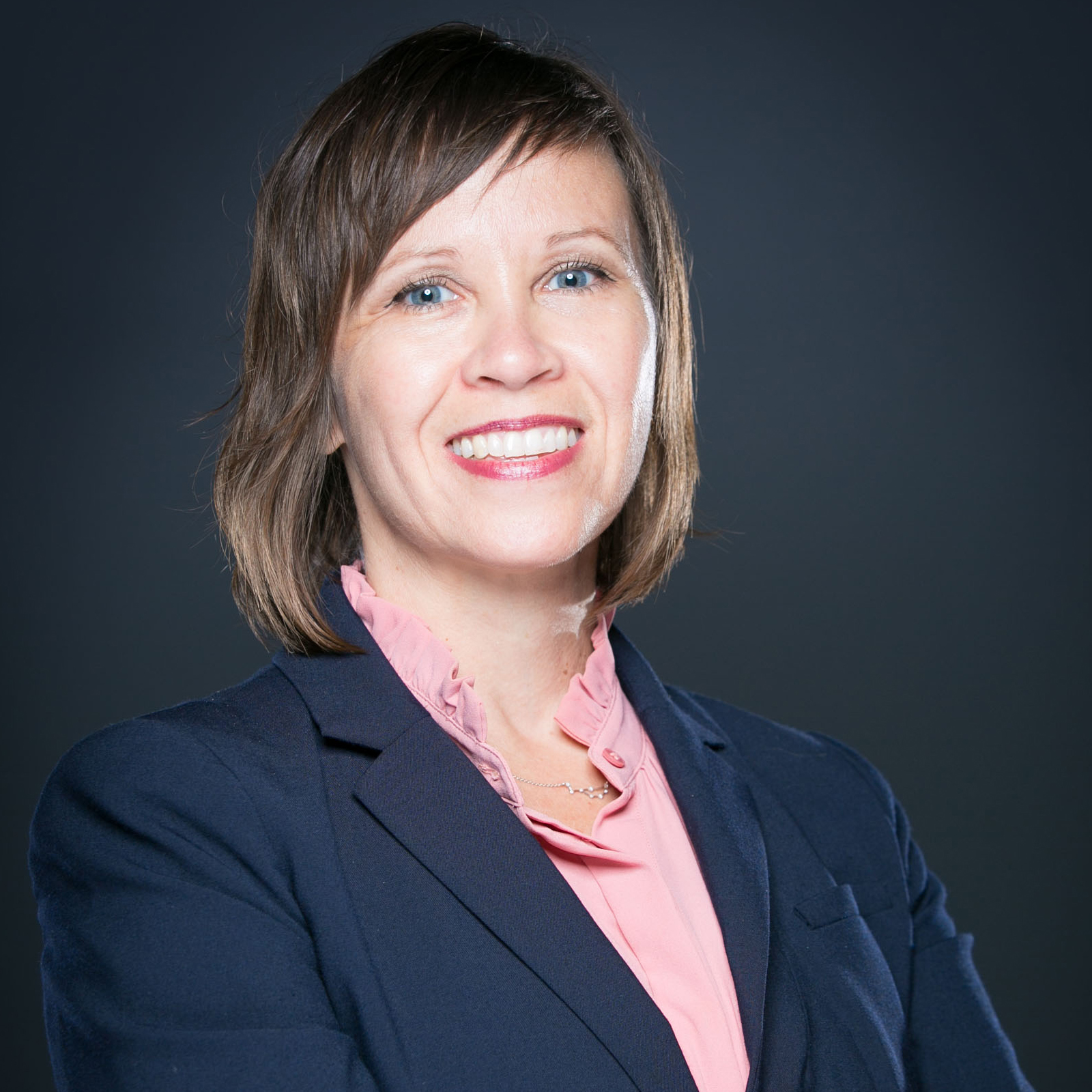 Dr. Nichole S. Prescott joined The University of Texas System in December 2016. As Assistant Vice Chancellor for Academic Affairs, P16 Initiatives, Dr. Prescott takes a lead role in strengthening the preK-16 pipeline and enhance college readiness for Texas students through expanded collaboration between the U. T. System, U. T. institutions and public preK-12 partners as well as entities. Dr. Prescott has a Ph.D. in History from the State University of New York at Stony Brook, two M.A. degrees in History and Women's Studies from SUNY and Miami University, and a B.A. in History from U. T. Austin.
Dr. Nichole S. Prescott joined The University of Texas System in December 2016. As Assistant Vice Chancellor for Academic Affairs, P16 Initiatives, Dr. Prescott takes a lead role in strengthening the preK-16 pipeline and enhance college readiness for Texas students through expanded collaboration between the U. T. System, U. T. institutions and public preK-12 partners as well as entities. Dr. Prescott has a Ph.D. in History from the State University of New York at Stony Brook, two M.A. degrees in History and Women's Studies from SUNY and Miami University, and a B.A. in History from U. T. Austin.
Before joining the U. T. System, Dr. Prescott served as the Director of Student Success for E3 Alliance, a regionally focused data-driven education organization that is the Central Texas P16 council. Her work focused on eliminating the achievement and opportunity gaps in Central Texas. As director, she oversaw a portfolio of initiatives aimed at building education systems through collaborative action with education, business, and community stakeholders in order to build the strongest educational pipeline in the country as the means to drive regional economic prosperity.
Included among her accomplishments at E3, Dr. Prescott led the Central Texas Council on Educator Preparation and scaled a nationally recognized English Language Learning initiative to 52 schools in 10 districts impacting 10,000 students. As a result of her strong leadership around the transformative system work targeted toward improving outcomes for English Language Learners, E3 Alliance and its partners were awarded a White House Initiative for Educational Excellence for Hispanics Bright Spots Recognition in 2015.
At the State University of New York at Stony Brook, Dr. Prescott was awarded the W. Burghardt Turner Fellowship (2000-2005) and the Hugh Cleland Award for Innovative Teaching by the Department of History (2005). Among her other awards are the Crane Award, presented by the Miami Tribe of Oklahoma (2003) and the prestigious Frances C. Allen Fellowship, History of the American Indian Scholar-in-Residence, at the Newberry Library in Chicago (2003).
Dr. Prescott has presented at numerous academic conferences and has been an invited speaker both domestically and internationally. She also co-organized the Indigenous Peoples Symposium at Stony Brook in 2002 to commemorate and reflect on the United Nations First International Decade of the World's Indigenous Peoples. She has authored and co-authored articles in scholarly as well as popular publications, such as Atotankiki Myaamiaki, "What the Miami are Talking About," (Miami tribal newspaper) and The American Indian Graduate.
Dr. Prescott has been interviewed about her work by national media outlets, such as Indian Country Today and Univision, as well as local media, such as KXAN TV station, KUT (local NPR station) radio station, KLBJ radio station, and Ahora Sí (Spanish portion of the Austin American Statesman). She is a member of the National Congress of American Indians, National Indian Education Association, Native American and Indigenous Studies Association.
Dr. Prescott is a proud citizen of the Miami Tribe of Oklahoma (Myaamia) and actively participates in the culture and language revitalization efforts of her people. Born in an Indian Hospital in Oklahoma, Dr. Prescott was raised on the Texas/Mexico border before she moved to Austin to pursue a college degree at The University of Texas as a first-generation college student. While Austin is her home, Dr. Prescott has maintained a strong engagement with the broader Native American community, formerly serving on the Board of Directors of the American Indians of Texas as well as former Executive Director of the Myaamia Foundation.
Locally, Dr. Prescott has served on numerous equity-focused committees. Among these are Mayor's Task Force on Institutional Racism & Systemic Inequities, Greater Austin Community Schools Coalition Team (Mayor's Office), Bilingual Innovation Design Team (Austin Independent School District), Newcomer Innovation Design Team Member (Austin Independent School District), Austin Opportunity Youth Collaborative, and the Austin College Access Network. She also volunteers for the Great Promise for American Indians, the Human Rights Campaign, and Out Youth.
Weston Rose, M.A.
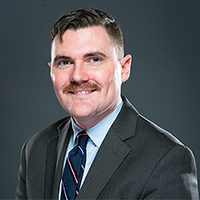 Weston Rose is a Senior Program Manager in the Office of Academic Affairs at The University of Texas System. He provides support for the Regular Agenda and Consent Agenda for the Academic Affairs Committee for the Board of Regents meetings. Weston also coordinates multiple systemwide initiatives related to the P-20 education pipeline, student success, student affairs, and faculty affairs – including the ElevateTXed initiative, the nomination process for Student Regent and the THECB Student Representative, and the Regents’ Outstanding Teaching Awards. Since 2016, he has supported for the UT System Academy of Distinguished Teachers. Weston provides project management for UT System's Advising initiative and the UT System's Academic Advising Leadership Council; he co-lead the development of the Fundamentals of Excellence in Academic Advising eLearning training modules launched in September 2025. Moreover, Weston supports the Momentum on Open Educational Resources initiative; serves as a supervisor for the Academic Affairs Intern through the UT System Internship (UTSI) and Law Clerkship (LC) program; and is a content publisher for the Office of Academic Affairs, developing and managing web content.
Weston Rose is a Senior Program Manager in the Office of Academic Affairs at The University of Texas System. He provides support for the Regular Agenda and Consent Agenda for the Academic Affairs Committee for the Board of Regents meetings. Weston also coordinates multiple systemwide initiatives related to the P-20 education pipeline, student success, student affairs, and faculty affairs – including the ElevateTXed initiative, the nomination process for Student Regent and the THECB Student Representative, and the Regents’ Outstanding Teaching Awards. Since 2016, he has supported for the UT System Academy of Distinguished Teachers. Weston provides project management for UT System's Advising initiative and the UT System's Academic Advising Leadership Council; he co-lead the development of the Fundamentals of Excellence in Academic Advising eLearning training modules launched in September 2025. Moreover, Weston supports the Momentum on Open Educational Resources initiative; serves as a supervisor for the Academic Affairs Intern through the UT System Internship (UTSI) and Law Clerkship (LC) program; and is a content publisher for the Office of Academic Affairs, developing and managing web content.
Weston joined UT System in June 2016 as a Program & Communications Coordinator. Previously, he served as a Research Communications Manager in the Office of the Vice President for Research, Scholarship and Creative Endeavors at The University of Texas at Austin; and as a Media & Communications Specialist in the Office of Graduate Studies at Sam Houston State University, where he edited a yearly university magazine focused on graduate student research. He began his career as an academic advisor and lecturer, teaching Composition to undergraduate students.
Weston received his bachelor's and master’s degrees from Sam Houston State University. In addition, Weston is a Certified Professional in Training & Performance through the IDOL Academy for instructional designers, and he earned a Certificate of Completion from UT Austin’s Full-Stack Web Development Bootcamp in 2020. In 2021, he completed a Board Internship Program through I Live Here I Give Here and Leadership Austin’s Emerge ’14 Cohort, a program that “helps aspiring leaders and young professionals identify ‘the leader within’ while developing skills and building relationships that lead to high impact.”


